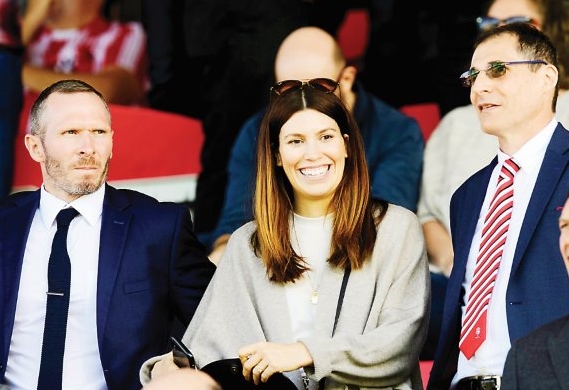
News

South Africans kicking up a storm in English football
LUKE ALFRED
He opted for Everton.
He’d always liked Alan Ball, famously the youngest member of England’s World Cup winning side of 1966.In those days, Ball was in the midst of making Everton’s midfield the most feared in the land. Everton’s blue might not have been the best known club in Liverpool, but he didn’t mind. The young Nates had found an English football home.
Nates’ loyalty to Everton continues to this day (he still watches them when he can).Upon retirement, after helping to set up South Africa’s first hedge fund management company, he looked forward to putting his feet up and easing into his dotage. It wasn’t to be.
Three years into retirement, he felt the itch to do something different. “I realised I needed to do something more,” he says. “It was either get back into hedge-fund management or do something crazy.”
Nates opted for the latter. Although an Everton supporter through thick and considerable periods of thin, he had also started to follow Lincoln City, a side who Everton had a brief alliance with in the early 2000s.
As Everton was well beyond his means, Lincoln City became an obvious choice as the idea of investing in an English club grew. The catalyst for furthering the idea occurred in early 2015, when he read about Lincoln’s bankers withdrawing their facilities to the club. He fired off an e-mail to England, and spoke to their then chairman about buying a stake. “It took almost a year to do the deal,” says Nates. “Along with Ashley Mendelowitz and Sean Melnick, silent partners initially but now much more involved, we formed a limited liability partnership (LLP) and suddenly, I was involved with a non-league English football team.”
Whether by luck or circumstance, Nates’ role in Lincoln City (Lincoln is a cathedral town in England’s East Midlands) coincided with years of conspicuous success for the club. They gained promotion in two out of the first three seasons he was involved in, and currently find themselves mid-table in English Football’s League One, the old third division, in other words.
Two seasons ago, Lincoln also had a dream FA Cup run in, nudging past Brighton and Premier League Burnley before having the adventure rudely ended 5-0 by Arsenal in the quarter-finals – the first non-league club in 103 years to go that far. “We did well from prize money, additional sponsorship, and broadcast fees [in the FA Cup],” says Nates. “Also the gates get shared, so we received 45% of a 60 000 crowd at the Emirates for the Arsenal game. That kind of money allowed us to pay off our debts and fund the development of a new training ground.”
Such success was always going to attract attention, and last month, the club lost their successful and hugely popular managers, Danny and Nicky Cowley. Uncertainty prior to their departure meant they lost five of their last six matches, and the club’s poor run of form continued before Michael Appleton was formally appointed as the Cowleys’ successor a couple of weeks ago.
Nates is trying to remain philosophical, saying that a period of “consolidation” was always going to take place sooner or later, but they’ve recently shipped six goals to Oxford United, a result which would thankfully appear to be an aberration after Saturday’s important 2-0 home win over Sunderland.
Nates now takes even greater interest in the club than he might have done when he and his silent partners bought their stake. Just more than a year ago, he became chairman, is part of an executive committee of four, and works hand-in-hand with the club’s chief executive, visiting England about five or six times a year.
His next trip will take place at the end of the month, and coincides with the beginning of the club’s FA Cup campaign, something he’s hoping will be as lucrative as it was in 2017. When he gets to Lincoln, he’s invariably busy, lending his considerable financial and organisational expertise to a club who have recently got used to dreaming big. “You can’t imagine the issues and the complexities which crop up when you are involved on a day-to-day basis,” he says, with a suggestion behind the words that he might have agonised a little longer in becoming so involved if he’d known then what he knows now.
He also hasn’t been able entirely to get used to the scrutiny the club’s decisions attract, whether these be in the local media or on social media. This, too, is something Nates responds to with good-natured stoicism, saying that the decision to get involved initially and subsequently accept the chairmanship has given him reason to get up in the morning.
It’s a simple but strangely noble admission. Who, after all, wouldn’t want to indulge their boyhood dream of being chairman of an English football club?




